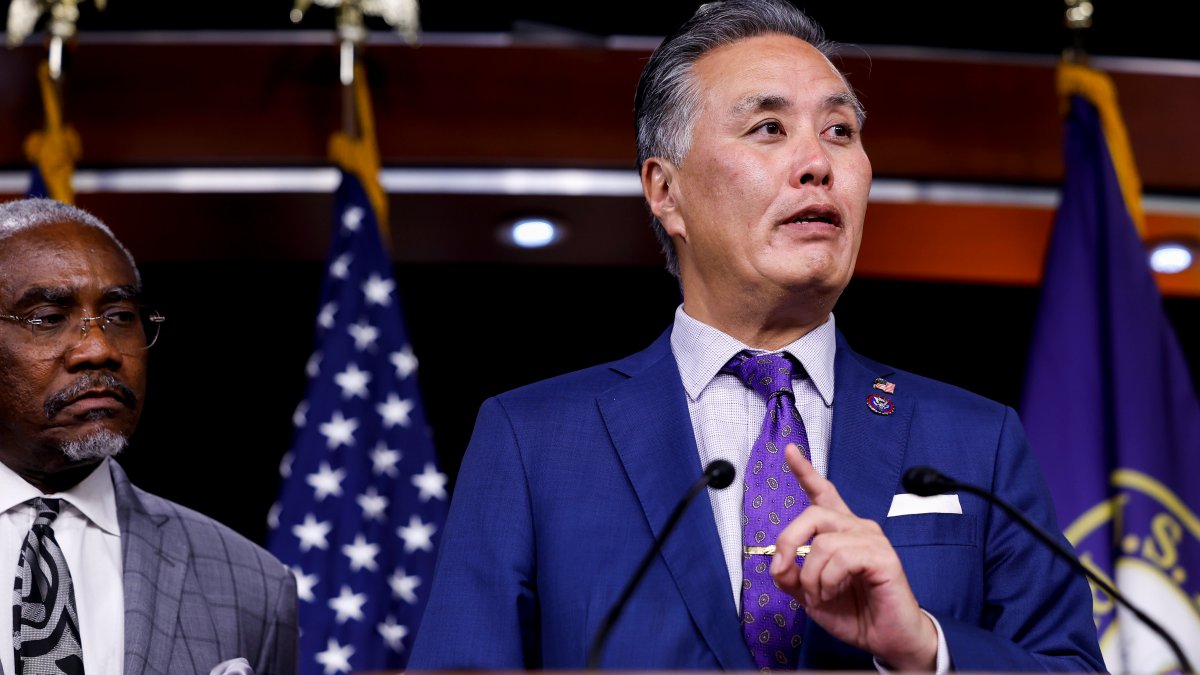The four-day workweek is busier than ever, and a California congressman wants to make it federal law.
Rep. Mark Takano, who represents California’s 39th District, has resubmitted to Congress his 32-hour workweek law, which, if passed, would officially reduce the standard definition of the 40-hour workweek. to 32 by amendment to the Fair Labor Standards Act.
His proposal would require overtime pay for any work done after 32 hours, which would encourage companies to pay workers more for longer hours or shorten the week and hire more people.
The bill applies to non-exempt workers, who typically work part-time in recreation and hospitality, transportation, construction, manufacturing, wholesale and retail trade.
It’s by design, Takano told CNBC Make It. “Serious conversations about the reduced work week are happening for white collar workers, white collar workers. What my bill will do is stimulate the conversation about how to democratize this rule to other sectors of the workforce so that everyone benefits.
New protections for workers could ‘increase the happiness of mankind’
Takano first introduced the legislation to Congress in 2021. It was approved by the Congressional Progressive Caucus, made the rounds on the internet, but ultimately failed to make progress in Congress.
Takano says he is passionate about the 32-hour work week to bring “meaningful change that will increase the happiness of mankind. This is a very big statement. But it was a big deal 100 years ago when we gave people the weekend by passing the Fair Labor Standards Act,’ which established a 40-hour workweek and created other protections. for workers. “It’s all part of the social justice discourse,” he says.
Several California lawmakers are proposing a four-day workweek,
Proponents say a shorter week would push companies to hire more people, increase labor market participation and create “healthier competition in the workplace that allows workers to negotiate better wages and conditions.” work,” according to a statement from Takano’s team.
The bill’s reintroduction to Congress follows headlines about the success of a global pilot program and new proposals circulating in Maryland.
Nearly 3,000 UK workers from 61 companies recently completed a six-month Short Workweek pilot program run by the nonprofit 4 Day Week Global. Companies reported improved productivity, revenue, morale, and team culture, while individuals saw benefits to their health, finances, and relationships.
More than 900 workers from 33 companies in the United States and Ireland went through the same program last year, and none of them will go back to the five-day model.
Critics worry about a ‘one size fits all’ approach
Not everyone agrees with a 32-hour work week law. When asked to comment, a spokesperson for the Society for Human Resource Management referred CNBC Make It to an earlier statement opposing similar legislation introduced in the California Assembly last year.
Critics oppose the legislation for its “one-size-fits-all approach,” writes Emily M. Dickens, SHRM chief of staff and government affairs officer. Dickens writes that a similar bill could exacerbate staffing shortages, increase labor costs and make life harder for HR professionals and businesses “struggling to recover from the worst days of the pandemic. “.
Now that the 32-hour workweek law is back in Congress, Takano says the next step is to “get more and more people to understand the case for it, to appeal to business leaders and employees who have experienced the positive effects of a shorter workweek and begin to reduce change anxieties.
This article was originally published in English by Jennifer Liu for our sister network CNBC.com. For more on CNBC, head here.

